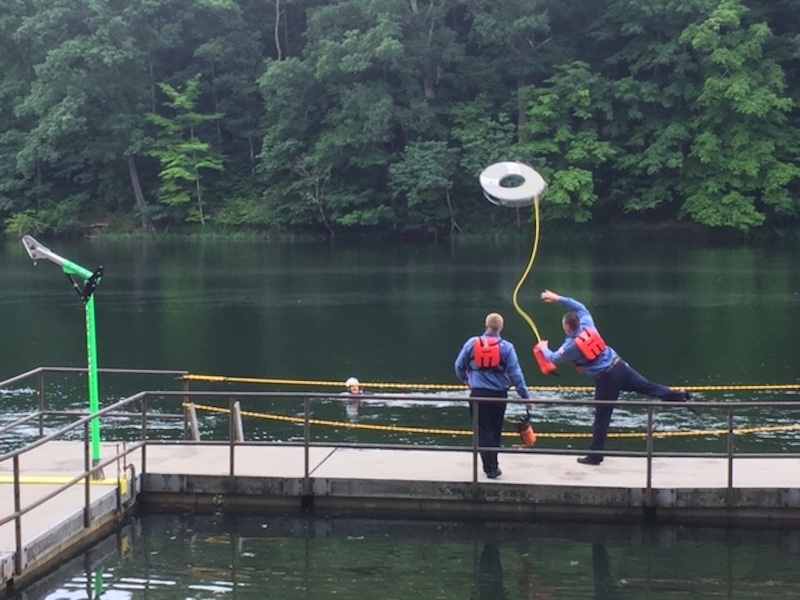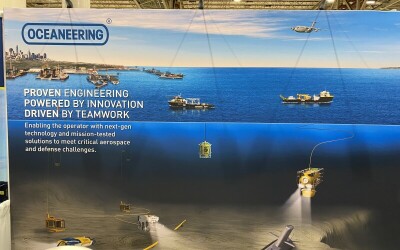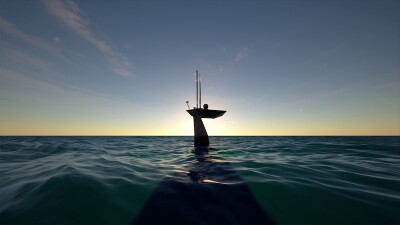Man overboard (MOB) incidents are among the top causes of injuries and fatalities on inland towing vessels, and preventing such incidents requires constant training and vigilance by all employees, from boat crews to shoreside personnel.
That’s a conclusion of a security expert who explained how Marathon Petroleum is confronting the problem during a Sept. 1 safety webinar organized by the American Waterways Operators as part of its Virtual Summer of Safety series.
Man overboard “is your number one (risk) exposure,” said Eric Fetty, emerging response and security coordinator at Marathon’s Marine Division in Cattlesburg, Ky. “The numbers don’t lie — when you look at crew fatalities by accident type, over 50 percent of industry fatalities are due to falls in the water, so with an exposure like that you have to pay attention.”
In introducing the discussion, Brian Bailey, AWO’s director of safety and environmental stewardship, cited data collected in 2019 by the Coast Guard-AWO Safety Partnership that showed a doubling of crew fatalities from 2014-2016, with nearly half caused by falls overboard. Data from the Coast Guard and incident reports showed that 68% of MOB incidents occur at night 32% during the day, nearly 60% occur in the first half of the calendar year, indicating the influence of dangerous winter weather conditions, and the majority occur on the Lower Mississippi and Ohio Rivers.
Focus on MOB accidents began to ramp up at Marathon after a fatality in 2010. The company reviewed its safety culture and as a result, “a lot good things have come about,” Fetty said. With the help of a third-party consultant, Marathon created a program that includes training and refresher courses for everyone in the company with a special emphasis on teaching new deckhands measures to prevent and react to overboard falls.
New deckhands spend close to a month in the classroom, he said, and then continue riverside at a training pad that simulates the deck of a barge for hands-on exercises. With a diver in the water, man overboard drills are practiced using specialized equipment. The new hires also train on harbor boats before being sent out on a line boat for their first hitch.
“This all came out of this (2010) fatality,” Fetty said, adding that the company had three more MOB incidents that year, “so we knew we had to change.”
He said Marathon’s program focuses on prevention, rather than rescue and survival “because if we can prevent falls from happening, the rest is a moot point.”
Features of the program include:
- Taking the ice chest challenge in which chests are filled with water and ice as well as washers, nuts and bolts. Mariners put their hands in the water and try to assemble the washer combination. The goal is to show the effects of “functional disability,” the point at which the hands would lose their ability to function due to the cold. “It doesn’t take long to lose that dexterity, and once you’ve lost it, you’re really marginalized to help your own rescue,” he said.
- Learning to correctly fall in the water (cup hands over face and mouth to prevent gulping water and hit the water horizontally, not on your back) and how best to float in the HELP position (on back keeping hands, neck, upper chest out of water and ankles crossed and knees to chest to retain body heat)
- Becoming proficient in how various onboard lifesaving equipment functions. The rope bag is the “best tool in our arsenal,” Fetty said, as it is inexpensive and effective in throwing a life-line to a submerged mariner and pulling him back to the vessel.
- Learning how to administer first aid, especially when hypothermia is involved, and CPR. “We go through the resources they have on a towboat,” he said.
Not much can be changed on a towboat or barge to prevent accidents given the nature of a vessel’s construction and function, Fetty said, so safety training and vigilance onboard are key.
Training has helped greatly reduce MOB incidents at Marathon. There was one fall in the water in 2012, and since then “we’ve had a clean slate.”
“We always strive for continual improvement with our program,” Fetty added. “We’ve done a lot of enhancements since it was developed, and the hands-on portion has evolved a lot more.” Marathon has expanded the training to other units of its business and has shared its program with the Coast Guard, first responders and others in the industry.
“The culture change has taken time, and I think we’re in a good place now, but we can’t let up,” he said. “(Safety) culture is everything and it’s hugely important. You can train all you want to train, but if you don’t get a buy-in from the workforce, you’re not going to be successful.”
Employees should be asked for their input when making improvements to a program, and the lifesaving nature of training should be frequently emphasized.
“It’s all about going home to the people who are important to you in your life,” Fetty said, adding that this training will become even more important as the nation recovers from the pandemic and traffic on the river picks up and boats are busy.
The webinar will be accessible on AWO’s website: https://www.americanwaterways.com/summerofsafety.





